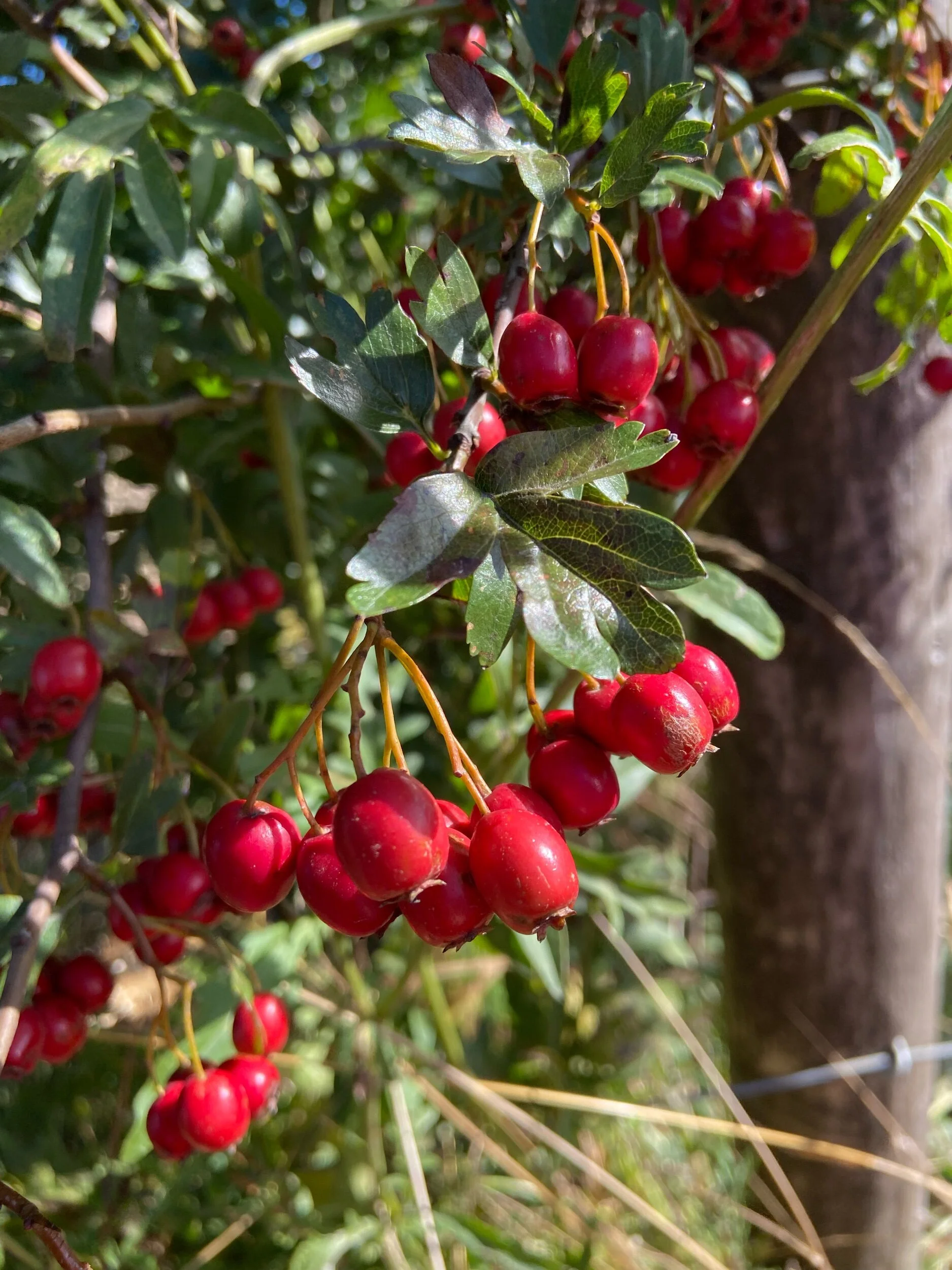A tree dishes the dirt on dirt
Isabella Tree, that is. What a great name. Especially if you’re a conservationist. Or a genealogist. Not so good if you were an industrialist I suppose.
At any rate, Isabella Tree is aptly named and her book ‘Wilding’ (the Return to Nature of a British Farm) is a delight. It’s well written, presenting facts and even some statistics in an unusually gripping way, nothing dry or dull in this book. Presuming you’re interested in the topic in general of course.
The book follows the development of Knepp Castle Estate in Sussex from fully working farm, traditional looking yet with all the up-to-date methods of the 90’s to a conservation estate now offering camping, glamping and nature safaris - worthwhile due to all the species enticed by the lure of weeds, bugs, scrub (aka hawthorn, rose, bramble) producing plenty to eat for all. This despite decades of management via tractors, pesticides and chemical fertilizers.
Hawthorn berries
One point which particularly struck me was that dung beetles are now endangered in the UK. Why? Because commercial farming, in a nutshell, pumps so many chemicals into the animals that their dung remains so chemically laden it literally kills. So even the manure isn’t good for the ground.
When going for a walk enjoying an idyllic scene shortly after reading this book, I was struck with the truisms evidenced right in front of me. The farm land is sterile. Not a bug nor beetle to be seen. Quiet without insects. No small birds, larger birds a rare lonely sight.
A beautiful but sterile landscape
While it seems we hear quite a bit about conservation efforts, one thing that stood out to me was how the approach demonstrated in this book really makes a bit of a fool of man’s efforts. Intensively attempting to manage areas for the benefit of a special species is shown to be a bit of a waste of time and energy, whereas giving land back to nature, albeit reintroducing certain key factors we’ve removed to farm intensively, namely grazers and rooters in particular, works a treat.
This book is simultaneously encouraging, as it shows how quickly nature can regenerate, given the right conditions, and frustrating, since it highlights how exceedingly slowly bureaucracy moves and how unwilling the scientific community can be to accept new evidence, when it implies the loss of cherished beliefs.
https://www.goodreads.com/book/show/38891828-wilding


